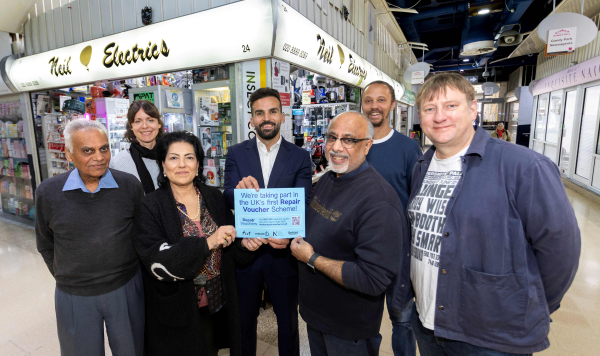The government must go further in its cash incentive plan to improve drinks packaging recycling and consider the impact on local councils, the North London Waste Authority (NLWA) has warned.
In its published consultation response on the introduction of a Deposit Return Scheme, the Department for Environment, Food and Rural Affairs (Defra) revealed that glass bottles will not be included in England.
It also appears that high-density polyethylene containers, which plastic milk bottles are made from, will not be covered, despite these being included in the original consultation.
Due to the complexity of recycling glass and the associated costs, the scheme will focus on polyethylene terephthalate bottles, which are commonly used for soft drinks, and steel and aluminium cans. Glass will, however, be included in Wales.
Defra insists that in England, glass drinks bottles will instead be covered by the Extended Producer Responsibility (EPR), which will place targets on producers in relation to recycling.
While full details of how the Deposit Return Scheme will operate are yet to be disclosed, Defra has labelled the scheme as ‘industry-led’, and the Deposit Management Organisation which will operate it is likely to be made up of industry bodies.
This is despite the impact the scheme is likely to have on local authorities and the valuable insight they could contribute to its development.
By the third year of operation, it is anticipated the scheme will be collecting 90% of eligible drinks containers. Local authorities will be left to extract and redeem the remaining 10% from their waste streams, despite many calling for this process to be managed through EPR payments.
There is no clarity on whether local authorities will be compensated for lost revenue from the sale of material and how individual local authority recycling rates will be affected.
NLWA Chair, Cllr Clyde Loakes, said: “It’s good news that the government is finally pushing ahead with the Deposit Return Scheme, but I am concerned about the lack of local authority voice. It feels like we are sadly being largely ignored.
“It is going to become increasingly difficult to meet targets as we will lose a significant amount of recyclable material to this scheme, and having to retrieve what is left to redeem the deposit ourselves will place an additional burden on us.
“We need to measure the environmental impact of all waste and encourage the reuse of items where possible. Lots of countries have Deposit Return Schemes where glass bottles are reused. It’s not a new or innovative idea, but apparently it’s still too difficult for this government to consider.”
The Deposit Return Scheme is not set to launch until October 2025 at the earliest.
Cash deposits will be placed on single-use drinks containers, which will be redeemable when bottles or cans are returned to a reverse vending machine.
EPR, which will make companies responsible for dealing with their packaging at the end of its life, is due to launch next year. It will apply to businesses with a £1 million turnover, which produce more than 25 tonnes of packaging per year.







